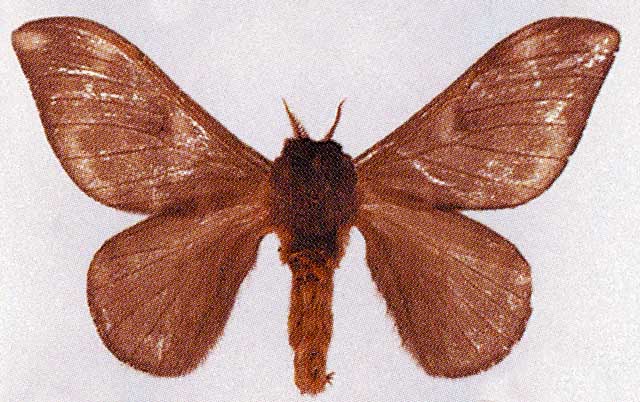Hylesia pauper
Dyar, 1913
Hylesia pauper male, Claude Lemaire, on my home computer only

Hylesia pauper male, Claude Lemaire, on my home computer only
TAXONOMY:Superfamily: Bombycoidea, Latreille, 1802 |
"Someone to Watch |
|
|
Updated as per Lemaire's Hemileucinae 2002, February, 2008, January 2009 |

Hylesia pauper male, Claude Lemaire, on my home computer only

Hylesia pauper male, Claude Lemaire, on my home computer only
TAXONOMY:Superfamily: Bombycoidea, Latreille, 1802 |
"Someone to Watch |
This species has been taken at elevations from 20m to 850m.
The thorax and abdomen are brown, with yellowish hairs on the abdomen. The narrow forewing is apically produced with a brownish-grey ground colour. The am line is indistinct. The distinct, brown pm line is straight to slightly convex and is outwardly bordered in white. The cell mark is dark brown and the rest of the cell on the body side is light, almost white. The submarginal band shows a greyish white suffusion along its outward lower half.
This species probably broods continuously on a three month cycle. Peak flight seems to be January-February.

Hylesia pauper female, Claude Lemaire, on my home computer only
Hylesia pauper larvae are highly gregarious and have the urticating spines typical of larvae from the Subfamily Hemileucinae.
Return to Hylesia Index
Goto Mexico and Central American Saturniidae Directory
Goto South American Saturniidae Directory